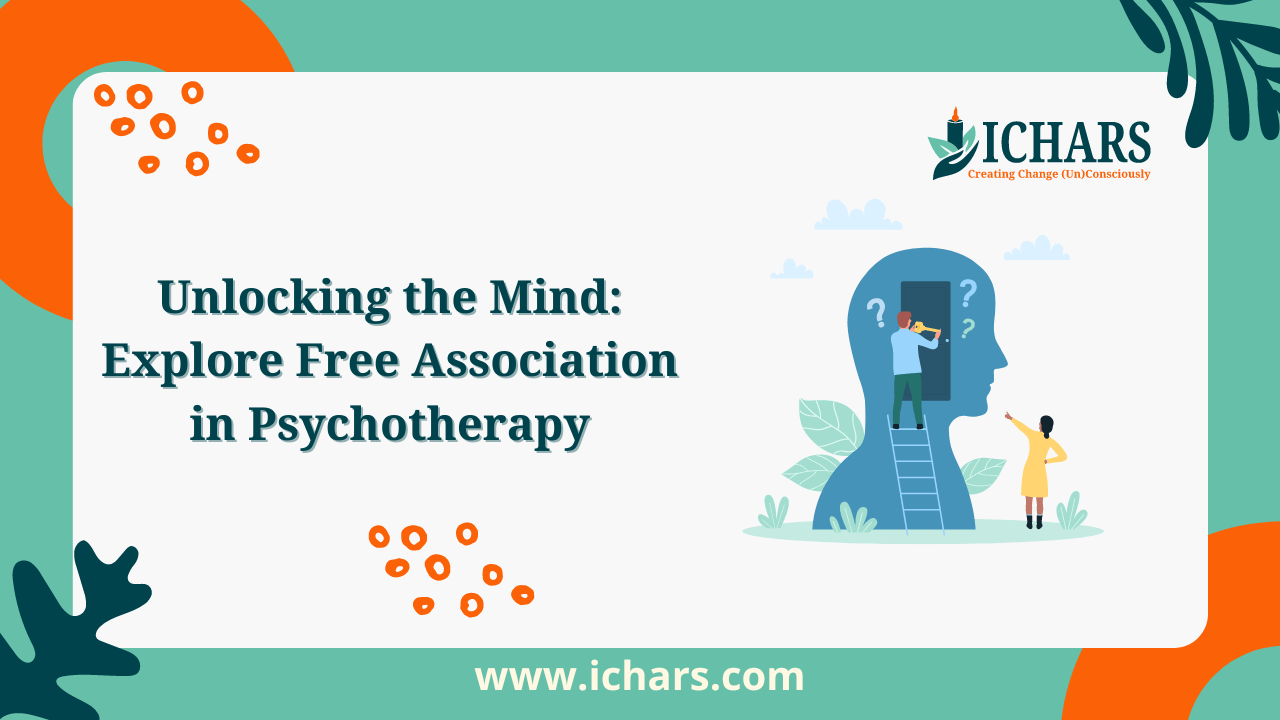In the realm of psychotherapy, few techniques are as potent and transformative as free association. Originating from Freudian psychoanalysis and deeply integrated into modern therapeutic approaches like Cognitive Hypnotic Psychotherapy (CHP), this technique remains a cornerstone for exploring the depths of the human psyche.
Theoretical Foundations

Freudian Roots: Sigmund Freud pioneered this method to unveil unconscious thoughts and emotions. By encouraging patients to speak without inhibition, Freud believed that repressed desires and unresolved conflicts would surface, offering insights into underlying psychological issues.
Evolution in Modern Psychology: Over the years, this technique has evolved beyond its psychoanalytic origins. It now serves as a versatile tool within CHP, which integrates cognitive, behavioural, humanistic, and psychodynamic principles, alongside techniques from mindfulness, NLP, and spiritual healing practices.
Techniques and Process
How Free Association Works: In therapy sessions, this method involves clients expressing thoughts, emotions, and memories as they naturally arise, without censorship or structure. This uninhibited flow allows therapists to discern patterns, uncover buried traumas, and explore the core beliefs shaping clients’ behaviours and perceptions.
Implementing Free Association: Psychologists create a safe environment where clients feel comfortable exploring their inner worlds. Through active listening and gentle guidance, therapists facilitate a process where clients freely associate and delve into the depths of their subconscious.
Benefits of Free Association

Uncovering the Unconscious: This technique serves as a powerful gateway to the unconscious mind, revealing hidden thoughts and emotions that may underlie clients’ presenting issues. By accessing these deep-seated feelings, clients gain profound insights into their own psyche.
Facilitating Insight and Awareness: The process promotes self-awareness by illuminating unconscious motivations and patterns of thinking. This heightened awareness empowers clients to make informed choices and facilitates personal growth.
Enhancing Therapeutic Outcomes: Integrated within CHP, free association contributes to more effective therapy outcomes by addressing root causes of psychological distress. This holistic approach supports lasting behavioural change and emotional healing.
Challenges and Considerations
Obstacles: Some clients may initially struggle with free association due to anxiety, fear of judgment, or discomfort with exploring vulnerable emotions. Therapists must cultivate trust and rapport to mitigate these barriers effectively.
Ethical Considerations: Practitioners must uphold ethical standards by respecting clients’ autonomy, maintaining confidentiality, and navigating sensitive topics with sensitivity and professionalism. Clear boundaries and informed consent are crucial in ensuring therapeutic integrity.
Overcoming Challenges in CHP: Techniques such as gradual desensitization, rapport-building exercises, and establishing a therapeutic alliance are invaluable in overcoming initial resistance and fostering a conducive environment for free association.
Integration with Cognitive Hypnotic Psychotherapy (CHP)
Aligning with CHP Principles: CHP integrates free association seamlessly with other therapeutic modalities, such as hypnosis, cognitive restructuring, and metaphorical techniques. This integrative approach allows therapists to tailor treatment plans that address both conscious and unconscious aspects of clients’ psychological well-being.
Complementary Techniques: Hypnosis deepens the exploration of associations, facilitating access to deeper layers of the subconscious mind. Cognitive restructuring helps clients reinterpret their thoughts and emotions in a constructive light, promoting resilience and adaptive coping strategies.
Techniques Based on Free Association
- Corrective Therapy: Utilizes free association to guide clients from surface-level concerns to underlying psychological issues, fostering deeper insights and facilitating emotional resolution.
- Hypnotic Regression Therapy: Incorporates free association in a hypnotic state to revisit past traumas or significant life events, enabling clients to process unresolved emotions and achieve therapeutic closure.
- Inner Advisor: Engages clients in accessing their inner wisdom and intuitive insights through free association, providing guidance and clarity during therapy sessions.
- NLP Timeline Therapy: Integrates free association to explore and reframe emotional associations tied to past memories, promoting healing and personal growth through cognitive and emotional restructuring.
Conclusion
Free association stands as a foundational technique in psychotherapy, particularly within the comprehensive framework of Cognitive Hypnotic Psychotherapy. By embracing this approach, psychologists uncover hidden dimensions of clients’ experiences, promote self-awareness, and facilitate transformative change. As the field evolves, integrating this process with advanced therapeutic modalities promises to expand therapeutic possibilities and enhance client outcomes.
To integrate this process effectively into practice, psychologists are encouraged to deepen their theoretical understanding, engage in ongoing professional development, and uphold ethical standards rigorously. By mastering the nuances of free association within CHP, psychologists can empower clients to navigate their inner landscapes with clarity and resilience, fostering enduring psychological well-being and personal growth.

